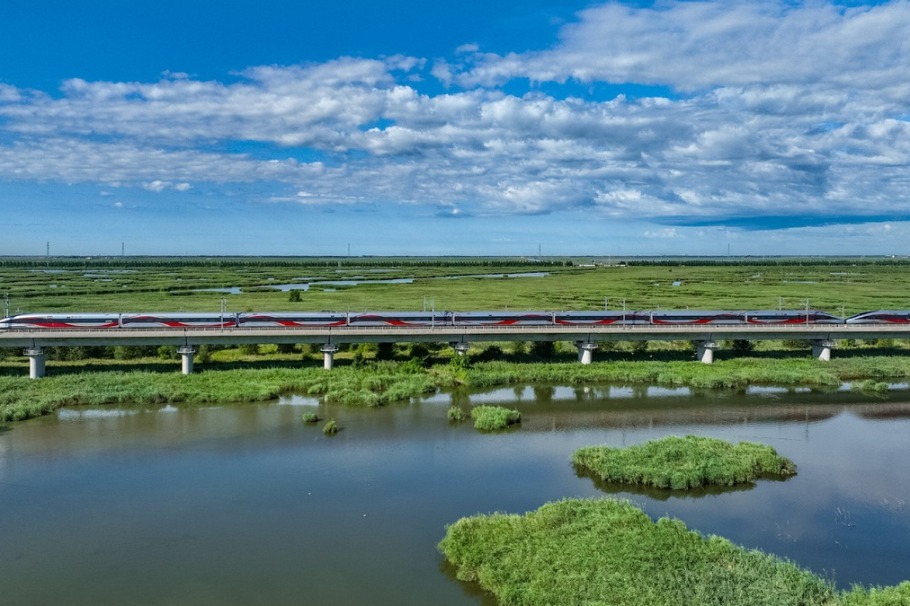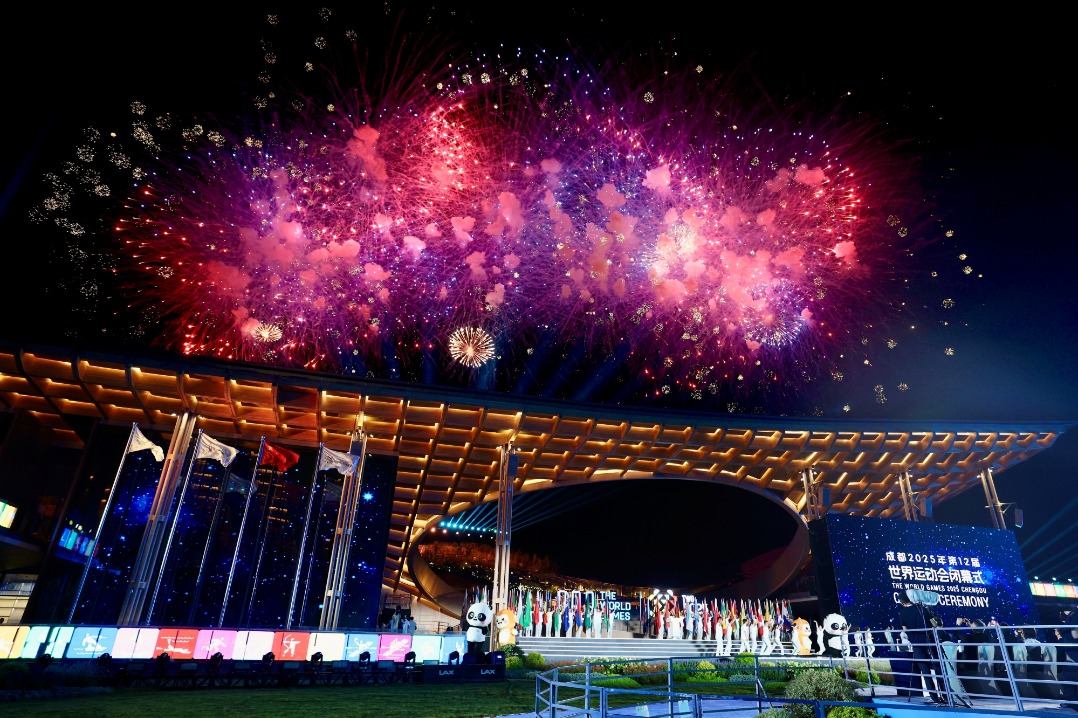Xi Jinping's vision drives China's winter sports boom

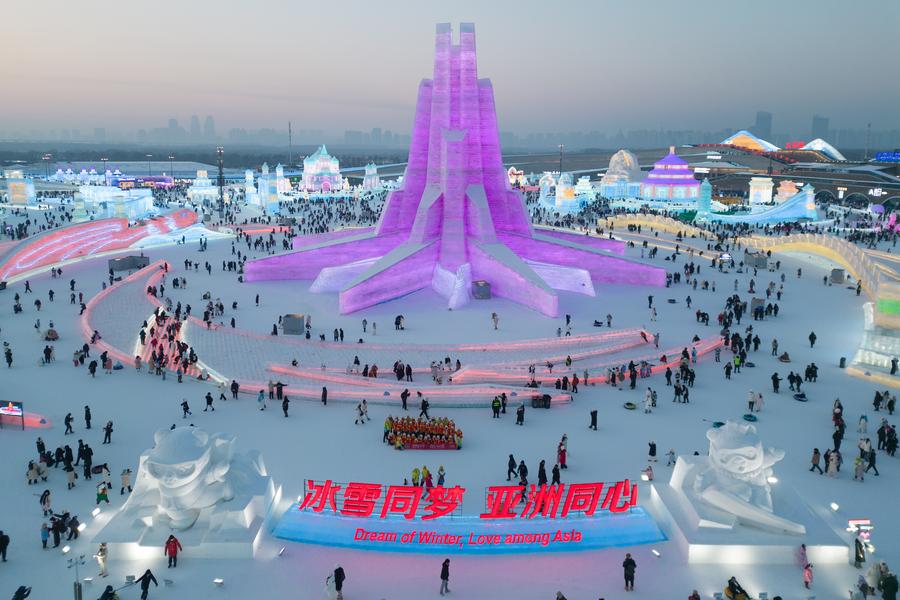
BEIJING -- As winter settles across China, excitement for winter sports is in full swing, with skiers carving down slopes and ice skaters gliding across rinks from north to south. Enthusiasm is especially high as the 9th Asian Winter Games opens Friday in Harbin, marking another milestone for China's winter sports development.
At the heart of this movement is President Xi Jinping, whose lifelong passion for sports has fueled the rapid expansion of winter activities nationwide.
The foundation for this boom was laid more than a decade ago when Xi, attending the Sochi Winter Olympics, met with International Olympic Committee President Thomas Bach. During their meeting, Xi set an ambitious goal: to engage 300 million people in winter sports. That vision has since become a reality.
By April 2024, following the Beijing 2022 Winter Olympics, around 313 million people — over 22 percent of China's population — had actively participated in ice and snow activities.
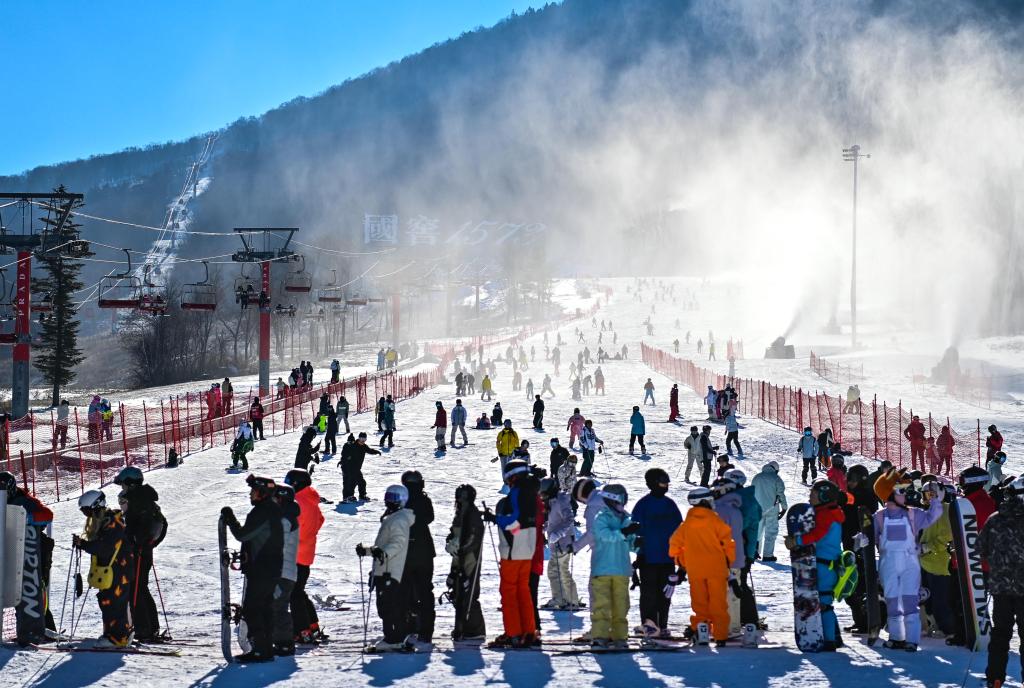
FROM CHILDHOOD PASSION TO NATIONAL LEGACY
Xi's love for winter sports dates back to his childhood. In the 1950s and 1960s, skating on Beijing's Shichahai Lake was a popular winter pastime. Young Xi often rushed home from school to skate on the frozen lake.
That early connection to winter sports evolved into a national mission. Historically, winter sports in China were largely confined to the colder northern regions and were practiced in harsh conditions. Xi sought to change that.
From the successful bid for the 2022 Beijing Winter Olympics to the Games' execution, Xi played a leading role. Between 2015 and 2022, he visited Olympic venues in Beijing and Zhangjiakou five times, overseeing venue construction, management, and volunteer operations. During a 2021 inspection visit, he emphasized using the Winter Olympics as a catalyst to elevate the nation's ice and snow sports culture.
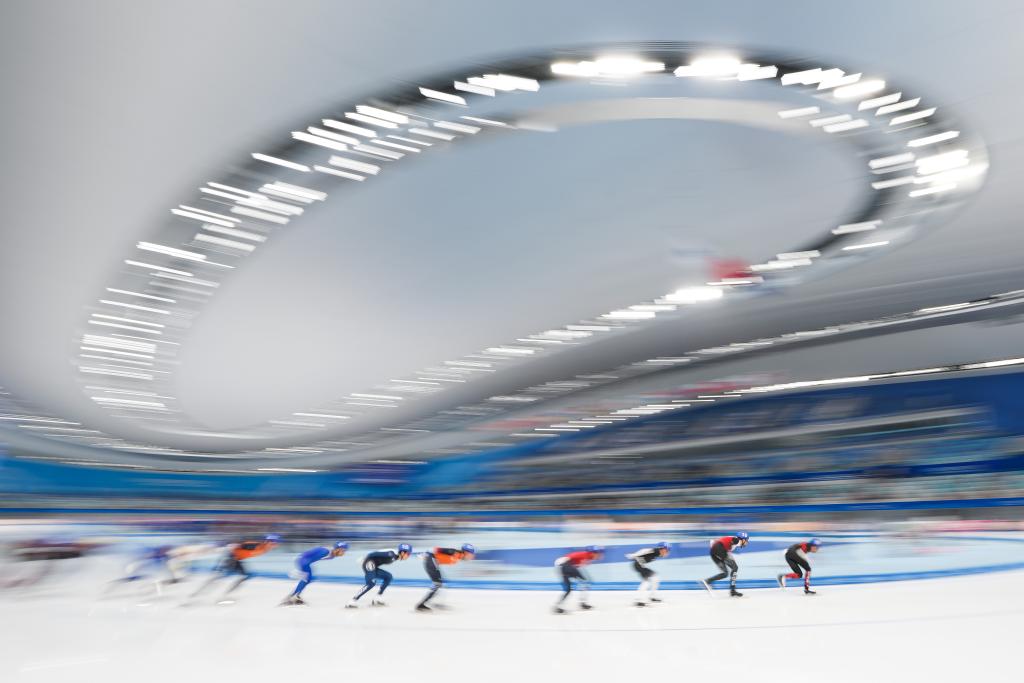
Beijing's hosting of the Winter Games proved transformative. Today, seniors and children alike are skating and skiing in places where snow was once rare. Increased investment in facilities has made winter sports more accessible and affordable.
By the end of 2023, the number of winter sports venues in China had reached 2,847, a 16.1% year-over-year increase, with new facilities even emerging in southern regions.
Xi's vision for China's winter sports development has reshaped the landscape. From his childhood struggles to afford skates to today's youth training in state-of-the-art facilities, the progress is evident.
"You now have excellent training facilities and a wonderful environment to strengthen your bodies and foster teamwork and bravery," Xi told young ice hockey players in 2017. "The future of China's ice and snow sports depends on your generation."
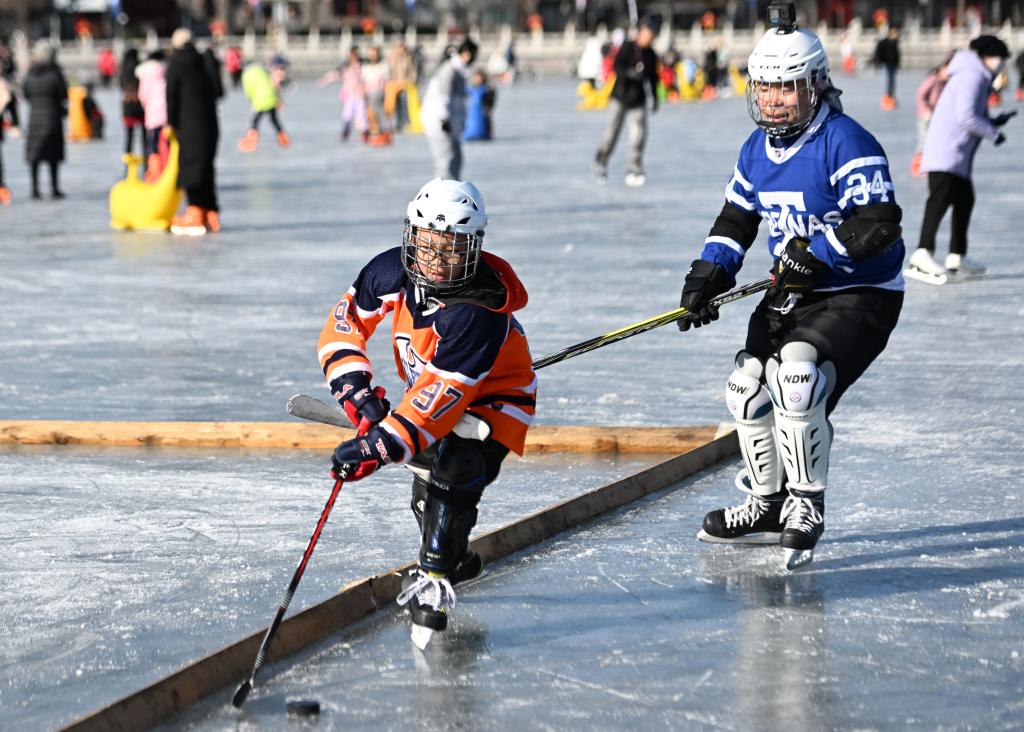
RISE OF ICE AND SNOW ECONOMY
The 9th Asian Winter Games, running from February 7 to 14 in Harbin, highlights China's growing influence in global winter sports.
Xi has described the ice and snow industry as a "mountain of gold and silver," emphasizing the need to leverage natural winter resources. His vision includes a comprehensive winter sports economy encompassing equipment manufacturing, tourism, and cultural industries.

China's ice and snow economy is projected to exceed 1 trillion yuan (about $138 billion) in 2025, with estimates reaching 1.2 trillion yuan by 2027 and 1.5 trillion yuan by 2030.
Last winter, China recorded more than 385 million winter leisure visits, a 38 percent year-over-year increase, with related revenue rising 50 percent.
Harbin, one of China's top winter tourism destinations, welcomed 87 million visitors — up 300 percent year-over-year — generating 124.8 billion yuan in tourism revenue, a 500 percent increase.
China's winter sports equipment industry is also expanding, bolstered by advancements in 5G, artificial intelligence, and virtual reality. The country now produces a full range of 15 ice and snow equipment categories, with innovations such as smart ski insoles, heated snow boots, and VR skiing simulators.
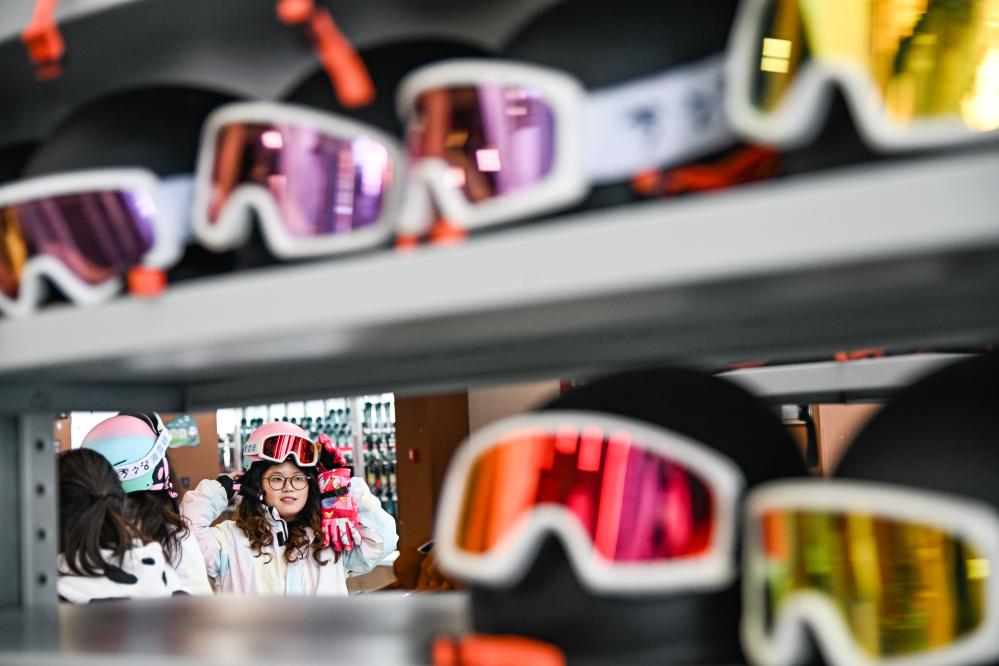
In 2023, Xi visited a village in Mohe, China's northernmost city, and emphasized the importance of utilizing snow and ice resources for economic growth. Today, the village has become a top destination for southern tourists, reflecting a broader trend across the country.
Chongli, Hebei province, is a prime example of this transformation. Once a poverty-stricken area, it has become a world-renowned ski resort, with one in four locals now employed in winter sports-related jobs.
"The ultimate goal of building a sporting powerhouse and a healthy China is to strengthen people's fitness," Xi said. "This is also an essential part of China's effort to build a modern socialist country in all respects."
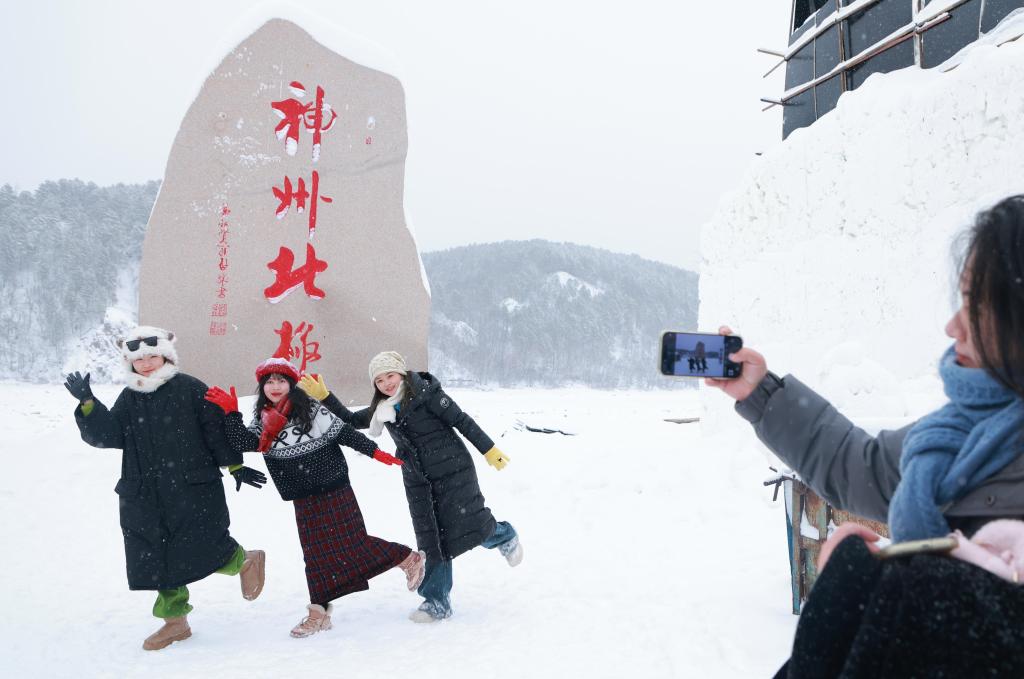
STRONGER GLOBAL TIES THROUGH WINTER SPORTS
Xi's leadership in winter sports has not only transformed China's ice and snow culture but has also fostered international cooperation. Through strategic policies and personal commitment, he has positioned sports as a bridge for global friendship and mutual understanding.
In August 2023, Xi wrote to the US-China Youth and Student Exchange Association and friendly personages in the US state of Washington, stating, "Sport is a bond that promotes friendship among peoples." This principle has guided China's efforts to use winter sports as a tool for diplomacy.

During a 2017 visit to Finland, Xi and then-Finnish President Sauli Niinisto met with Chinese and Finnish winter athletes, highlighting the role of sports in strengthening bilateral relations. Similarly, in 2018, Xi and Russian President Vladimir Putin watched a youth ice hockey match in Tianjin, reinforcing China-Russia ties.
Beyond individual partnerships, China has collaborated with multiple Asian nations to promote winter sports by sharing expertise, resources, and experiences. The upcoming Asian Winter Games exemplifies this spirit of unity and cooperation, with Bhutan, Cambodia and Saudi Arabia making their debut at the Games.
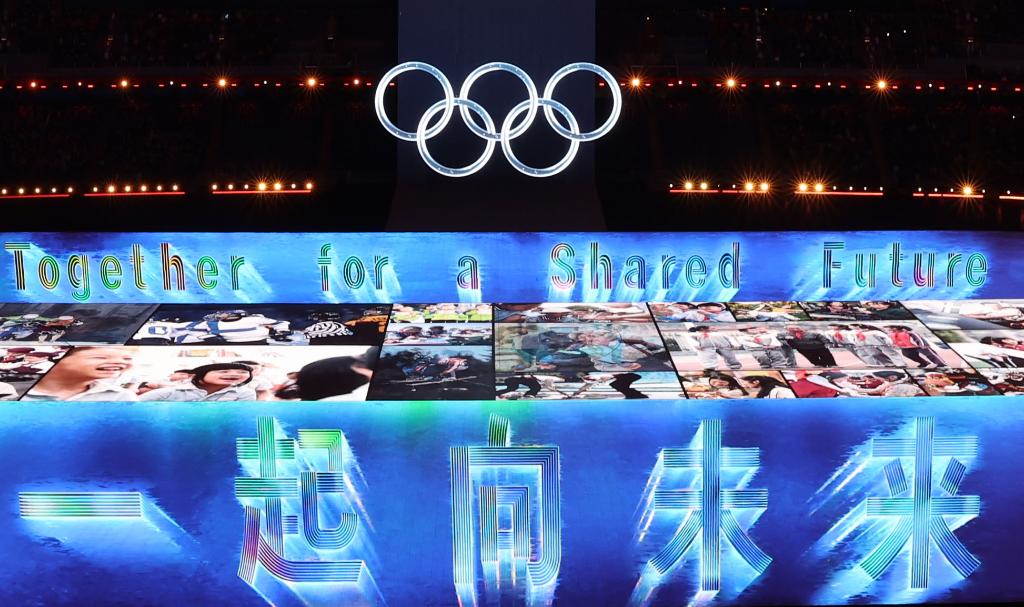
At the 2022 Beijing Winter Olympics, Xi underscored how the Games fostered global unity during challenging times. "It has also brought confidence and hope to a world overshadowed by instability," he said, reinforcing the Games' motto: "Together for a Shared Future."
Xi's contributions have long been recognized by the international sports community. IOC Vice-President Juan Antonio Samaranch Jr. praised his leadership, saying, "It's great to have such an important partner for sports and international Olympic matters."
Bach also commended Xi as a "true champion" with a clear vision for the role of sports in society.















